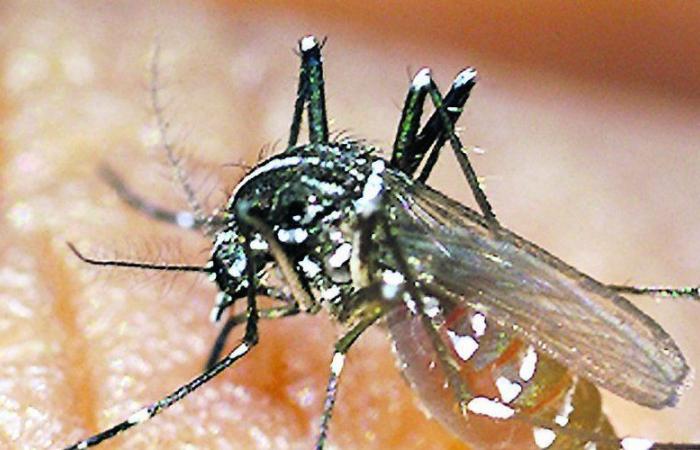
the essential
In the opinion of specialists from the Regional Health Agency (ARS), this year is likely to be exceptional in the fight against viral contamination by the tiger mosquito. Around fifteen people sick with dengue have already been detected since the start of the season in Haute-Garonne. Their domestic and professional environment is systematically treated with insecticide to prevent any spread of an epidemic.
Perhaps you have noticed while walking through the streets of Toulouse, a small poster warning you that a mosquito control operation is underway in your neighborhood. What you don’t suspect is that this warning hides a real race against time by health services to nip in the bud a possible spread of the tropical viruses of dengue, zika or chikungunya.
“As soon as a sick person is reported to us, we intervene at their home within a radius of 150 meters to prevent a mosquito from biting them, immediately becoming a vector of contamination,” explains a specialist in Regional Health Agency (ARS). The operation consists of spraying an insecticide, deltamethrin, around the home of the infected person, but also around all the professional, family or other places that they have frequented. Alerts which have multiplied in recent days while we are at the start of the tiger mosquito season.
Dengue alert…
“We have already identified around fifteen cases in Haute-Garonne, continues our specialist. In Toulouse, but also in Fenouillet, Villaudric, Balma, Blagnac, Muret, Gargas… Each time, these are patients who have contracted the virus during a trip, with a prevalence in the Antilles, Martinique or Guadeloupe where epidemics are strong at the moment. For the moment, it is mainly the dengue virus that has been spotted, but the attack is virulent. “Reported contaminations have increased tenfold since the start of the year in the department,” points out the ARS, “this is set to be an exceptional year and we are dependent on tropical epidemics.” Vigilance is therefore required to track the tiger before it bites an infected patient and spreads the virus by biting another. Especially since the nasty little beast has been rather discreet until now due to a cold spring, we are being told that there will be an explosion of hatchings next week with the first warm weather. “It’s going to go full force,” warns a mosquito hunter.
No massive mosquito control campaign
A priori there is no question of a barbecue in the garden, we are therefore promised the hell of injections. , Why in these conditions not resort to massive treatments beyond just the perimeter of the contaminated people. “This is a false good solution,” warns the ARS. “The more we treat, the more resistant the mosquito becomes.” And it is also about protecting the environment. Already, health services do not have the right to treat near watercourses or organic crops. “Deltamethrin is toxic to aquatic fauna,” explains the ARS, “while it is not very aggressive for warm-blooded animals such as humans, cats or dogs.” The use of this insecticide, which is similar to that contained in the bombs that we still buy commercially, however requires certain precautions in use. Town halls, beekeepers and farmers are systematically notified in the event of preventive spraying. The cure worse than the virus?





